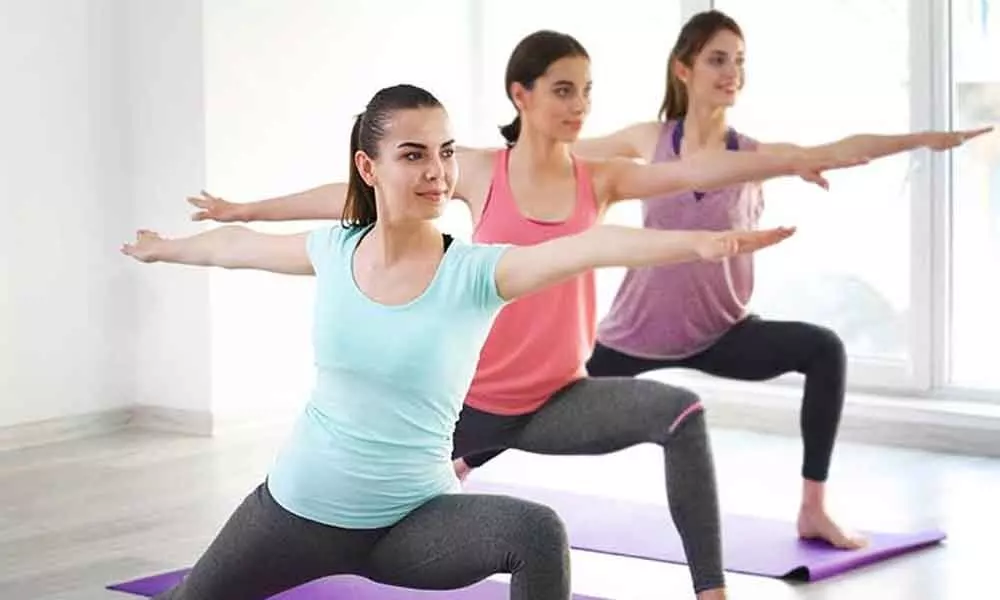Yoga as good as aerobics

If you do not like or cannot perform aerobic exercise for some reason, try yoga to improve brain health as scientists led by Indian-origin Neha Gothe have found evidence that yoga enhances many of the same brain structures and functions that benefit from aerobic exercise.
If you do not like or cannot perform aerobic exercise for some reason, try yoga to improve brain health as scientists led by Indian-origin Neha Gothe have found evidence that yoga enhances many of the same brain structures and functions that benefit from aerobic exercise.
The findings are based on a review focused on 11 studies of the relationship between yoga practice and brain health.
Five of the studies engaged individuals with no background in yoga practice in one or more yoga sessions per week over a period of 10-24 weeks, comparing brain health at the beginning and end of the intervention.
The other studies measured brain differences between individuals who regularly practice yoga and those who don't.
Each of the studies used brain-imaging techniques such as MRI and all involved Hatha yoga, which includes body movements, meditation and breathing exercises, said the team from the University of Illinois at Urbana-Champaign.
"From these 11 studies, we identified some brain regions that consistently come up, and they are surprisingly not very different from what we see with exercise research," said Gothe, University of Illinois kinesiology and community health professor Neha who led the research with Wayne State University psychology professor Jessica Damoiseaux.
"For example, we see increases in the volume of the hippocampus with yoga practice," she added.
Many studies looking at the brain effects of aerobic exercise have shown a similar increase in hippocampus size over time.
The hippocampus is involved in memory processing and is known to shrink with age.
"It is also the structure that is first affected in dementia and Alzheimer's disease," said Gothe in a paper published in the journal Brain Plasticity.
Though many of the studies are exploratory and not conclusive, the research points to other important brain changes associated with regular yoga practice, Damoiseaux said.
The amygdala, a brain structure that contributes to emotional regulation, tends to be larger in yoga practitioners than in their peers who do not practice yoga.
The prefrontal cortex, cingulate cortex and brain networks such as the default mode network also tend to be larger or more efficient in those who regularly practice yoga.
"The prefrontal cortex, a brain region just behind the forehead, is essential to planning, decision-making, multitasking, thinking about your options and picking the right option," Damoiseaux noted.
"The default mode network is a set of brain regions involved in thinking about the self, planning and memory".
The studies also find that the brain changes seen in individuals practicing yoga are associated with better performance on cognitive tests or measures of emotional regulation.
The discovery that yoga may have similar effects on the brain to aerobic exercise is intriguing and warrants more study, said researchers.
"Yoga is not aerobic in nature, so there must be other mechanisms leading to these brain changes," she said. "So far, we don't have the evidence to identify what those mechanisms are."
Enhancing emotional regulation is a key to yoga's positive effects on the brain.
"In one of my previous studies, we were looking at how yoga changes the cortisol stress response," Gothe said.
"We found that those who had done yoga for eight weeks had an attenuated cortisol response to stress that was associated with better performance on tests of decision-making, task-switching and attention."
Yoga helps people with or without anxiety disorders manage their stress.
"The practice of yoga helps improve emotional regulation to reduce stress, anxiety and depression," she said.








